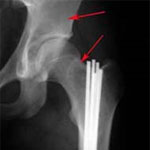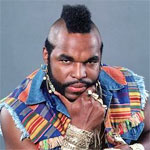Dear Dr Rassman:
I’m a 27 year old who has long suffered from Fibrous Dysplasia (I’m not sure if you are familiar with this disease). Due to my ailment, I have incurred over 30 medical surgeries over my lifetime. My hair was thick up untl high school, and then it really began to thin. The only ancestors of mine that have been bald were only two of my great-grandfathers. I was wondering if all of the major surgery I have had would have caused my hair loss. Also, I have been on propecia since November of last year and am having some back surgery next week. Would the shock of surgery or the medications used cause my hair loss to increase? Also, because I may be missing a couple of days of propecia doses would this affect the progress of the drug in combating my hair loss?

 I’m familiar with fibrous dysplasia (it is a very rare bone disease), but I do not know what surgery you have had or what medications you take. Your question is very general and it is not something I can give you an answer to in this format. You need to see a physician and have a complete history and examination.
I’m familiar with fibrous dysplasia (it is a very rare bone disease), but I do not know what surgery you have had or what medications you take. Your question is very general and it is not something I can give you an answer to in this format. You need to see a physician and have a complete history and examination.
In most cases, hair loss in men is caused by genetics. If you have an autoimmune disease like a form of a scarring alopecia, surgery done in these conditions can be dangerous and produce failures of the grafts and further scarring of the scalp. Any medical illness or surgery that is a stress to your body can cause hair loss (sometimes permanent). But to distinguish that from genetic causes is something that only a thorough examination with a physician can provide. You are looking for a cause and effect type of relationship and I really cannot help you with the limited information I have.


 I’ve never had that request before, but yes, it is distinctly possible. What I tell all my patients is that the good and bad news about hair transplants is that they are absolutely permanent. As a young man, a mohawk may be a great idea for your particular look, but at 60 years old, will it still be great? Depending upon how thick you want it, it might take between 2500-6000 grafts.
I’ve never had that request before, but yes, it is distinctly possible. What I tell all my patients is that the good and bad news about hair transplants is that they are absolutely permanent. As a young man, a mohawk may be a great idea for your particular look, but at 60 years old, will it still be great? Depending upon how thick you want it, it might take between 2500-6000 grafts.